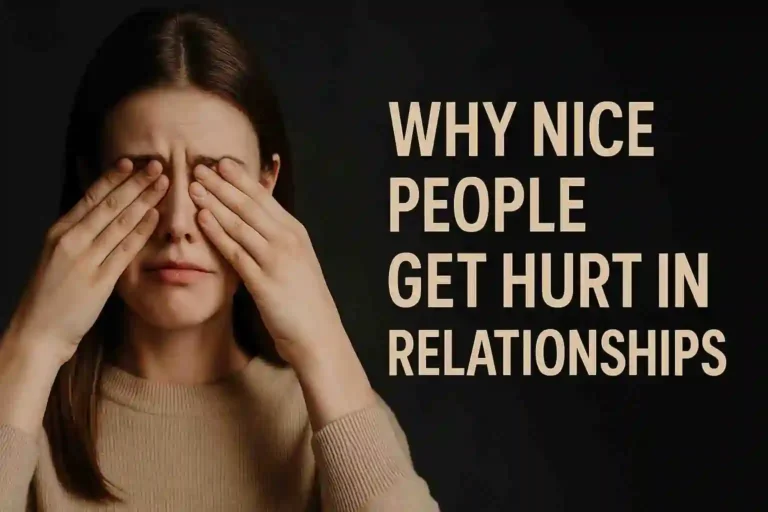Top 10 Reasons Relationships Fail And How to Fix Them
Relationships are like gardens—they thrive with care, attention, and understanding. But just as plants can wither without sunlight or water, relationships can falter when key needs aren’t met. For those new to love, understanding common pitfalls can help you nurture stronger, healthier bonds. Let’s explore the top reasons relationships fail, with real-life examples and actionable tips to avoid them.
1. Poor Communication
What Happens:
Communication is the foundation of any relationship. When couples stop talking openly, misunderstandings and resentment grow. For instance, Alex assumes Jamie doesn’t care about their anniversary because they didn’t plan anything—but Jamie simply forgot and feels too guilty to admit it. Without honest dialogue, small issues snowball.
Why It Matters:
Unspoken feelings lead to emotional distance. Over time, partners may feel unheard or unimportant.
Recommended for You
How to Fix It:
- Practice active listening (e.g., “I hear you’re upset about the anniversary. Let’s plan something special together”).
- Schedule weekly check-ins to discuss feelings and needs.
2. Trust Issues
What Happens:
Trust is fragile. Whether it’s infidelity, secrecy, or constant suspicion, broken trust erodes connection. Sam checks their partner’s phone nightly, fearing betrayal, even though their partner has never cheated. This behavior breeds anxiety and defensiveness.
Why It Matters:
Without trust, relationships become stressful and controlling, stifling intimacy.
How to Fix It:
- Address insecurities openly (e.g., “I feel anxious when you’re out late. Can we talk about it?”).
- Rebuild trust through transparency and consistency.
3. Unrealistic Expectations
What Happens:
Expecting a partner to be perfect or fulfill every need sets you up for disappointment. Taylor gets angry when Riley doesn’t “intuitively” know they need support after a bad day. Unmet fantasies (e.g., “They should always prioritize me”) lead to frustration.
Why It Matters:
No one can read minds or be everything to someone. Unrealistic standards strain both partners.
How to Fix It:
- Communicate needs clearly (e.g., “I’d love a hug when I’m upset”).
- Embrace imperfections—love is about growth, not perfection.
4. Different Life Goals
What Happens:
Conflicting visions for the future can create irreparable rifts. Casey wants marriage and kids, while Morgan dreams of traveling solo indefinitely. Without compromise, resentment builds.
You Might Like
Why It Matters:
Shared goals create unity. Misaligned priorities can lead to breakup.
How to Fix It:
- Discuss long-term goals early (career, family, lifestyle).
- Find middle ground or acknowledge incompatibility kindly.
5. Lack of Emotional Intimacy
What Happens:
Emotional connection fades when couples stop sharing feelings. After years together, Jordan and Avery talk only about chores, avoiding deeper topics. This creates loneliness, even in a partnership.
Why It Matters:
Intimacy is the glue that binds couples. Without it, relationships feel hollow.
How to Fix It:
- Share daily highs/lows (e.g., “Today, I felt proud when…”).
- Prioritize quality time, like unplugged dinners or walks.
6. Poor Conflict Resolution
What Happens:
All couples argue—but destructive fighting (name-calling, silent treatment) harms bonds. During a fight about finances, Lee shouts, “You’re terrible with money!” Harsh words leave lasting scars.
Why It Matters:
Unresolved conflicts pile up, creating emotional baggage.
How to Fix It:
- Use “I” statements (e.g., “I feel worried about our savings”).
- Take breaks if emotions flare, then revisit calmly.
7. Taking Each Other for Granted
What Happens:
Neglecting appreciation starves a relationship. Dana cooks every night, but Chris never says thank you. Over time, Dana feels invisible and resentful.
Why It Matters:
Small acts of gratitude reinforce love and effort.
How to Fix It:
- Say “thank you” daily, even for little things.
- Surprise your partner with gestures (e.g., a note or favorite snack).
8. External Stressors
What Happens:
Work, family, or financial stress can overshadow a relationship. After losing a job, Kai withdraws emotionally, leaving their partner feeling shut out.
Why It Matters:
Stress distracts partners from nurturing their bond.
How to Fix It:
- Face challenges as a team (e.g., “Let’s create a budget together”).
- Carve out stress-free time to reconnect.
9. Lack of Commitment
What Happens:
When one partner isn’t fully invested, the relationship falters. Sam avoids discussing the future, making Riley feel like a placeholder.
Why It Matters:
Commitment provides security and direction.
How to Fix It:
- Clarify your intentions early.
- Reaffirm your dedication through actions (e.g., prioritizing date nights).
10. Growing Apart
What Happens:
People evolve, and relationships require adaptation. After 5 years, Priya discovers a passion for activism, while Alex prefers quiet weekends. Without shared growth, they drift apart.
Why It Matters:
Relationships thrive when partners grow together, not separately.
How to Fix It:
- Explore new hobbies or interests together.
- Support each other’s personal growth.
Final Thoughts
No relationship is perfect—all require effort, empathy, and adaptability. By recognizing these common pitfalls, you can proactively nurture your connection. Remember, love isn’t about avoiding problems; it’s about facing them together with patience and kindness. Start conversations early, celebrate small joys, and never stop learning about each other. Your relationship is a journey—enjoy growing through it.
Books like The 5 Love Languages help couples understand each other’s needs.
Share your favorite moments with us on Instagram!
Don’t keep this to yourself—share it with a friend!
















